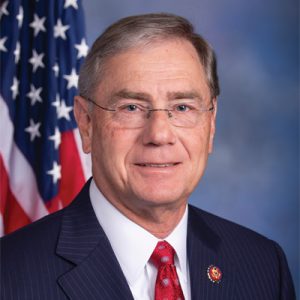We continue to see a pattern in our country that I’m sure you, as bankers, are well aware of. Political agendas, specifically climate change, are seeping into areas that have absolutely nothing to do with them. Through the guise of Environmental Social and Corporate Governance (ESG), progressives within the government and corporate America are taking outspoken positions on political and social issues that should have no bearing on business. ESG began as a fabricated metric to illustrate a perceived “enlightenment” that has transformed into a control tactic over corporate America. The parameters for who is “environmentally responsible” and who is not are murky at best. For example, Exxon Mobile received a higher ESG rating than Tesla. Not surprisingly, that rating change occurred when Elon Musk threatened to make public the inner workings of Twitter. No neutral observer could honestly argue that the ratings have anything to do with governance. It’s simply about applying political pressure on businesses to declare themselves aligned with the left, often at the expense of serving their customers, paying their workers, and supporting their local economies.
In the House Financial Services Committee, we saw a perfect example of the control some elected officials try to attain through ESG. In a hearing with seven bank CEOs, Congresswoman Rashida Talib demanded that each bank commits no further financing of fossil fuel production. Fortunately, the witnesses understood the real-world effects of that disastrous idea and did not satisfy the Congresswoman’s demand. Another even more troubling example is the proposed SEC Climate Rule. The SEC proposes that companies calculate and report the “climate-related risks” associated with their products and operations. That includes the emissions of every supplier and a prediction of the future emissions their products may create after the sale. Publicly traded banks would be charged with filing a disclosure for all their business customers. While that wouldn’t directly affect MIBA members, if any of your customers supply anything to a publicly traded company, they will be on the hook for those disclosures. Again, it’s a glaring example of regulators completely disregarding the real consequences of their absurd demands.
Unfortunately, it’s not just politicians or Twitter warriors demanding ESG commitments. Some of the largest corporations in the world are using their influence and boardroom seats to advance progressive priorities at the expense of American jobs. Even worse, they’re doing it with everyday citizens’ retirement savings. As you know, retirement plans and pension plans often invest in mutual funds or exchange-traded funds (ETFs). Those funds are comprised of hundreds of businesses whose stock is purchased and held at the fund. However, the individual investors almost never get the chance to exercise the voting rights the shares they own provide. That’s because the fund managers, like BlackRock or State Street, are voting on retirees’ behalf. They obviously don’t ask the retirees their opinions before voting, nor do they want it. They use the votes owned by individual investors to pursue their own agendas.
For example, in a letter to America’s CEOs, the CEO of BlackRock, Larry Fink, called on every company to “set short, medium, and long-term targets for greenhouse gas reductions.” He makes that demand with an implied threat that if companies do not comply, he’ll use the shares he controls (that he didn’t buy; retirees and pensioners did) to undermine the companies’ leadership. And because the “Big 3” investment advisors — BlackRock, Vanguard, and State Street — are the largest owners in 96% of the S&P 500 companies, they have the power to do it and have shown they are willing.
Before the August district work period, I introduced the Investor Democracy is Expected (INDEX) Act. Simply put, this bill gives individual investors — retirement savers, pension holders, and owners of these index funds — the ability to participate or not participate in shareholder votes. Fund managers would no longer be able to utilize the shares of everyday Americans to steer companies in a direction that satisfies their political desires. Those shares either get voted by the actual owner or don’t get voted at all.
Recently former OMB Director Russ Vought said in an interview, “Stopping ESG will take fortitude from Congress and fortitude from states,” and he’s exactly right. To go even further, it will take fortitude from businesses that believe their mission is to provide a service to their customers, create employment opportunities for their workers, and provide for their families to resist the intimidation tactics so many are experiencing. If businesses focus their efforts on the environment or other priorities, they are certainly well within their right to do that. But it must be their choice — not a mandate forced on them by regulators and activists.







